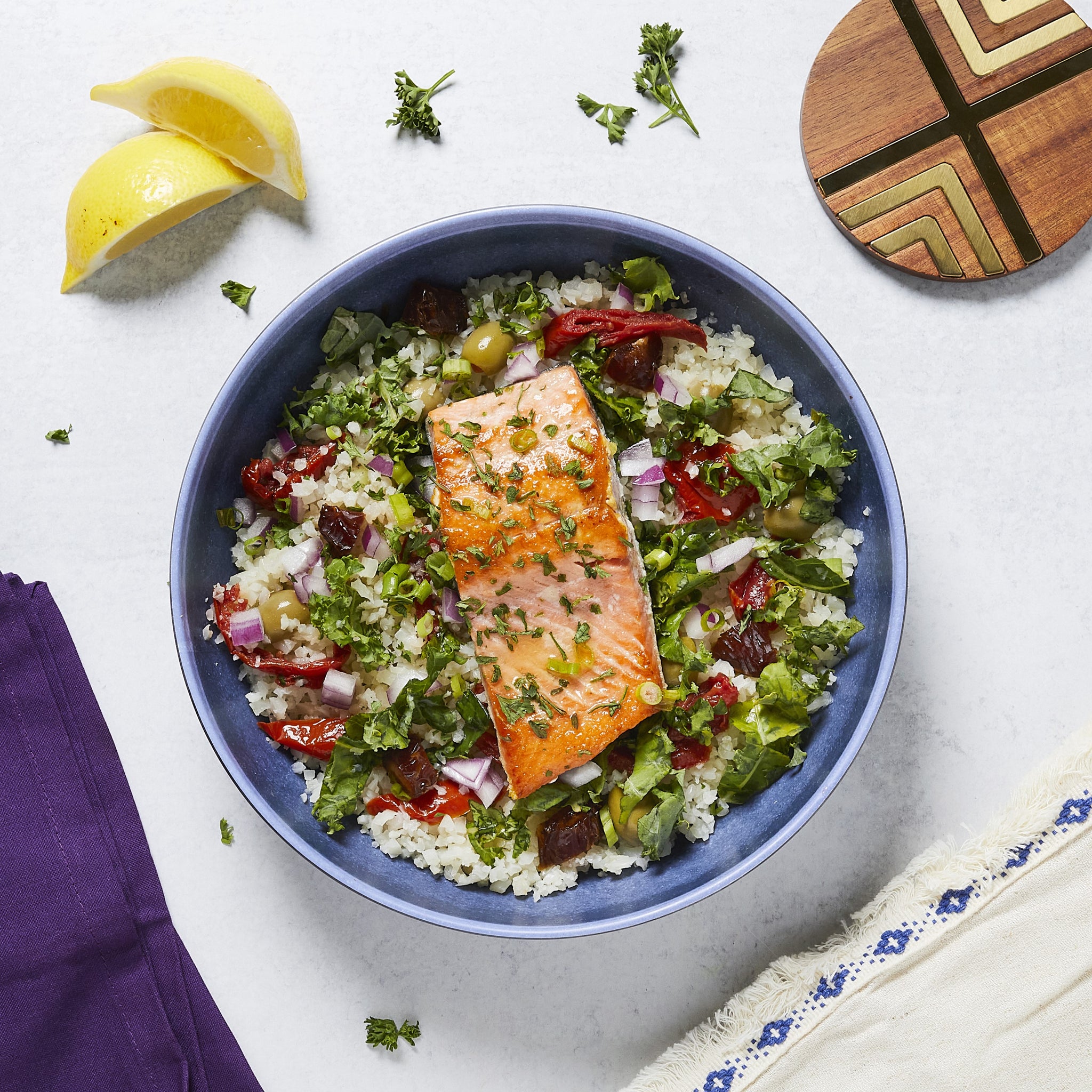When thinking about protein sources, fruits rarely come to mind. Yet, some fruits pack a surprising amount of protein, making them a tasty and nutritious addition to any meal plan. Whether you're aiming to build lean muscle, manage weight, or simply eat healthier, including high-protein fruits can support your goals while adding variety and flavor to your diet.
Why Protein Matters in Your Diet
Protein plays a crucial role in the body—it helps repair tissues, supports muscle growth, and keeps you feeling full longer. Most people associate protein with meats, dairy, or legumes, but fruits can also contribute to your daily intake. While fruits generally have less protein than animal products or beans, their unique combination of vitamins, minerals, antioxidants, and fiber makes them a valuable part of a balanced diet.
Choosing fruits with higher protein content can complement other protein-rich foods, especially for those who follow plant-based diets or want convenient snacks that support muscle maintenance and overall health. For example, fruits like guava and blackberries not only provide a refreshing taste but also offer a surprising amount of protein compared to other fruits. Guava, in particular, is a powerhouse, boasting around 4 grams of protein per cup, along with a rich supply of vitamin C and dietary fiber that aids digestion.
Moreover, incorporating fruits into your diet can enhance your overall nutrient intake. Many fruits are rich in antioxidants, which help combat oxidative stress in the body, potentially reducing the risk of chronic diseases. Berries, such as blueberries and raspberries, are especially known for their high antioxidant levels, which can support brain health and improve memory. Additionally, the fiber found in fruits can help regulate blood sugar levels, making them an excellent choice for those looking to maintain energy levels throughout the day. By diversifying your protein sources to include fruits, you not only enjoy a variety of flavors but also promote a more holistic approach to nutrition.
Top High-Protein Fruits to Include in Your Meals
Here’s a list of fruits that offer more protein than you might expect. Incorporating these into your meals can boost your protein intake without sacrificing taste or freshness.
1. Guava
Guava is a tropical fruit that stands out for its protein content—about 4.2 grams per cup. Beyond protein, it’s loaded with vitamin C, fiber, and antioxidants. Its sweet-tart flavor works beautifully in smoothies, salads, or eaten fresh as a snack. Additionally, guava is known for its potential health benefits, including improved digestion and enhanced immune function, thanks to its high antioxidant levels. You can also enjoy guava in jams or jellies, which make for a delightful spread on toast or a topping for desserts.
2. Blackberries
Blackberries provide roughly 2 grams of protein per cup. They’re also rich in fiber and vitamin K, making them great for digestion and bone health. Toss them into yogurt, oatmeal, or Healthy Fresh Meals for a burst of flavor and nutrition. Not only are they delicious, but blackberries also contain anthocyanins, which are compounds that may help reduce inflammation and improve heart health. You can also experiment with blackberries in sauces or as a natural sweetener in smoothies, giving your meals an extra nutritional punch.
3. Passion Fruit
With around 5 grams of protein per cup, passion fruit is a protein powerhouse among fruits. It’s also high in fiber and vitamin A. Its unique, aromatic flavor adds an exotic twist to breakfast bowls or desserts. Beyond its taste, passion fruit is rich in carotenoids, which are beneficial for eye health, and it has been linked to improved sleep quality due to its calming properties. You can enjoy passion fruit by scooping out its pulp and adding it to salads, or blending it into refreshing beverages for a tropical flair.
4. Avocado
Though often thought of as a fat source, avocado contains about 3 grams of protein per cup. It’s also rich in healthy monounsaturated fats and fiber. Use avocado in salads, spreads, or smoothies to add creaminess and a protein boost. Furthermore, avocados are known for their heart-healthy benefits, as they can help lower bad cholesterol levels. They also provide a wealth of nutrients, including potassium and vitamins E and K, making them a perfect addition to any meal. Try incorporating avocado into your breakfast by spreading it on whole-grain toast or blending it into a creamy dip.
5. Jackfruit
Jackfruit offers approximately 2.8 grams of protein per cup. It’s a versatile fruit often used as a meat substitute in vegetarian dishes due to its texture. Beyond protein, it provides vitamin C and potassium. Jackfruit is also a great source of antioxidants and has been praised for its potential to regulate blood sugar levels. You can enjoy jackfruit in various ways, from savory curries to sweet desserts, and it can even be grilled or roasted for a unique flavor experience.
6. Mulberries
Mulberries contain about 2 grams of protein per cup and are packed with iron and vitamin C. They’re delicious fresh or dried and can be sprinkled over cereals or blended into shakes. In addition to their protein content, mulberries are rich in resveratrol, a compound known for its anti-aging properties and potential heart health benefits. You can also use mulberries to make jams, sauces, or even as a topping for pancakes, adding a sweet and nutritious element to your breakfast or snack.
How to Incorporate High-Protein Fruits into Your Meal Prep
Adding these fruits to your diet doesn’t have to be complicated. Here are some practical ways to enjoy them daily while keeping your meals fresh, balanced, and exciting.
Mix Them into Breakfast
Start your day with a protein-rich fruit topping on oatmeal, yogurt, or smoothie bowls. For example, add guava or passion fruit to your morning smoothie for a tropical twist and an extra protein punch. You can also blend these fruits into your pancake batter for a delightful breakfast treat that not only tastes good but also boosts your protein intake. Consider topping your pancakes with a drizzle of honey and a sprinkle of chia seeds for added nutrition.
Snack Smart
Keep fresh blackberries or mulberries on hand for quick snacks. Pair them with a handful of nuts or a small serving of cottage cheese for a balanced mini-meal that satisfies hunger and supports muscle repair. Alternatively, you can create a delicious fruit and nut energy bar at home by blending these fruits with oats, nut butter, and a touch of honey, then pressing the mixture into a pan and refrigerating it until firm. This way, you have a convenient, on-the-go snack that’s both nutritious and delicious.
Enhance Salads and Bowls
Avocado and jackfruit can add texture and protein to salads or grain bowls. Their creamy and hearty qualities make meals more satisfying without extra cooking. You might also consider roasting jackfruit with spices to create a savory addition to your meals. When combined with leafy greens, quinoa, and a light dressing, it transforms a simple salad into a nutrient-packed powerhouse. Adding a sprinkle of nuts or seeds can further enhance the protein content and provide a satisfying crunch.
Try Creative Recipes
Experiment with recipes that feature these fruits—think guava salsa, jackfruit tacos, or passion fruit vinaigrette. Healthy Fresh Meals offers chef-prepared dishes that incorporate fresh, nutrient-dense ingredients, making it easy to enjoy balanced nutrition without the hassle of cooking. You can also try making a refreshing guava smoothie bowl topped with granola and coconut flakes, or whip up a tangy passion fruit curd to spread on whole-grain toast. These creative uses not only elevate your meals but also ensure that you are getting the most out of these high-protein fruits.
Read More: What fruits are keto-friendly?
Balancing Protein with Other Nutrients
While high-protein fruits are valuable, they work best as part of a balanced diet that includes lean proteins, complex carbohydrates, and healthy fats. Fruits contribute fiber, vitamins, and antioxidants that support digestion, immunity, and overall wellness.
For those focused on muscle building or weight management, pairing fruits with other protein sources can optimize results. For example, combining blackberries with Greek yogurt or adding avocado to a grilled chicken salad creates meals that satisfy hunger and nourish the body.
Why Choose Fresh, Chef-Prepared Meals with High-Protein Fruits?
Healthy Fresh Meals specializes in delivering fresh, never frozen meals that are nutritionally balanced and designed to support various health goals. Their rotating weekly menus often include dishes featuring high-protein fruits, ensuring you enjoy flavorful, convenient options that save time and effort.
By choosing meal prep services that emphasize fresh ingredients and balanced nutrition, you can stay consistent with healthy eating habits. This approach makes it easier to maintain energy, support muscle growth, and enjoy food that excites your palate.
Final Tips for Adding High-Protein Fruits to Your Diet
- Start small: Add one or two servings of high-protein fruits to your daily meals to gradually boost protein intake.
- Mix and match: Combine fruits with nuts, seeds, or dairy for a complete protein profile.
- Keep it fresh: Choose fresh, ripe fruits whenever possible to maximize flavor and nutrient content.
- Plan ahead: Utilize meal prep services or create a grocery list that includes these fruits regularly.
- Listen to your body: Notice how these fruits make you feel and adjust portions to suit your energy needs and goals.
Adding high-protein fruits to your diet is a simple, delicious way to improve your nutrition and support your health journey. With their unique flavors and nutritional benefits, these fruits can transform everyday meals into satisfying, healthful experiences.



